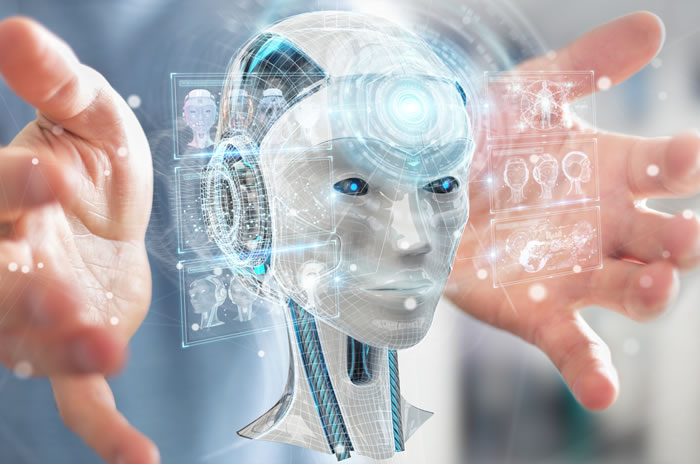In today’s fast-paced world, technology is reshaping industries across the globe. One area where technology is making a significant impact is in debt collection. In this article, we explore how AI helps with debt collection and how it is revolutionizing the financial industry. As businesses strive to improve efficiency and reduce costs, artificial intelligence offers a promising solution.

Understanding the Debt Collection Process
Before diving into the role of AI, it’s essential to understand the traditional debt collection process. Debt collection involves recovering overdue payments from individuals or businesses. This process can be time-consuming and often requires significant resources.
The Challenges in Traditional Debt Collection
Traditional debt collection methods face numerous challenges. These include locating debtors, assessing their ability to pay, and persuading them to settle their debts. Moreover, manual processes can be error-prone and inefficient.
Locating Debtors
One of the primary challenges is locating debtors. People often change addresses or contact information, making it difficult for collectors to track them down.
Assessing Debtors’ Ability to Pay
Determining a debtor’s ability to pay is crucial. Collectors need to assess financial situations accurately to propose suitable repayment plans.
Persuading Debtors to Pay
Convincing debtors to pay is often the most challenging part. It requires effective communication and negotiation skills.
How AI is Revolutionizing Debt Collection
Artificial intelligence is changing the game by addressing these challenges. Here’s how AI is transforming the debt collection process:
Data Analysis and Prediction
AI can analyze vast amounts of data quickly and accurately. By examining financial records and payment histories, AI algorithms can predict a debtor’s likelihood of paying. This allows collectors to prioritize their efforts effectively.
Automated Communication
AI-powered chatbots and virtual assistants can engage with debtors through personalized messages. These tools can answer queries, provide payment options, and even negotiate settlements.
Locating Debtors with AI
AI can assist in locating debtors by analyzing data from various sources. This includes social media, online directories, and public records. By cross-referencing information, AI can provide accurate contact details.
The Benefits of AI in Debt Collection
Implementing AI in debt collection offers several benefits for businesses:
Increased Efficiency
AI automates repetitive tasks, allowing debt collectors to focus on more complex cases. This increases overall efficiency and reduces operational costs.
Improved Accuracy
AI algorithms are highly accurate in analyzing data and predicting outcomes. This reduces errors and enhances decision-making processes.
Enhanced Customer Experience
AI-powered communication tools provide personalized experiences for debtors. This improves customer satisfaction and increases the likelihood of successful collections.
AI in Action: Real-World Examples
Several companies have successfully integrated AI into their debt collection processes. For instance, [AutoFX](https://autofx.com/ai-in-financial-data-extraction/) uses AI tools to streamline financial data extraction. This helps in assessing debtors’ financial situations more accurately.
Another example is the use of AI in [regulatory reporting](https://autofx.com/artificial-intelligence-in-regulatory-reporting/). By automating compliance tasks, businesses can focus on core operations.
Potential Drawbacks and Ethical Considerations
While AI offers numerous advantages, it’s essential to address potential drawbacks and ethical considerations. Data privacy, algorithm bias, and the impact on human jobs are critical issues that need attention.
Data Privacy Concerns
The use of AI involves handling sensitive financial data. Ensuring data privacy and security is paramount to prevent breaches and protect individuals’ information.
Algorithm Bias
AI algorithms can inadvertently introduce bias if not properly designed and monitored. It’s crucial to ensure fairness and transparency in AI-driven processes.
The Future of AI in Debt Collection
The future of debt collection looks promising with AI at the helm. As technology continues to evolve, AI will become more sophisticated, offering even more innovative solutions for the financial industry.
Conclusion: Embracing AI for Better Debt Collection
In conclusion, AI is revolutionizing debt collection by improving efficiency, accuracy, and customer experience. Businesses that embrace AI technology stand to gain a competitive edge in the financial industry. By leveraging AI-powered tools, debt collectors can streamline processes and achieve better results.
For more insights on AI’s impact on finance, check out this informative article on AI in finance.

Frequently Asked Questions
1. How does AI improve debt collection efficiency?
AI automates repetitive tasks, analyzes data accurately, and provides personalized communication, increasing overall efficiency.
2. What are the ethical concerns of using AI in debt collection?
Ethical concerns include data privacy, algorithm bias, and the potential impact on human jobs. Addressing these issues is crucial.
3. Can AI replace human debt collectors?
AI enhances debt collection processes but doesn’t replace human collectors. Human skills are still needed for complex negotiations and decision-making.






